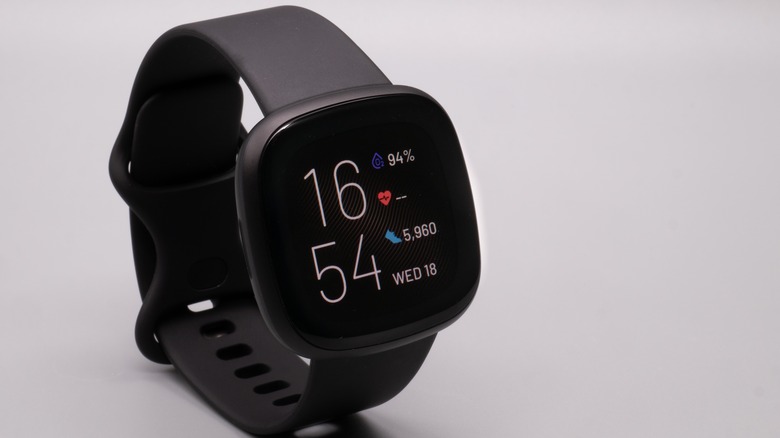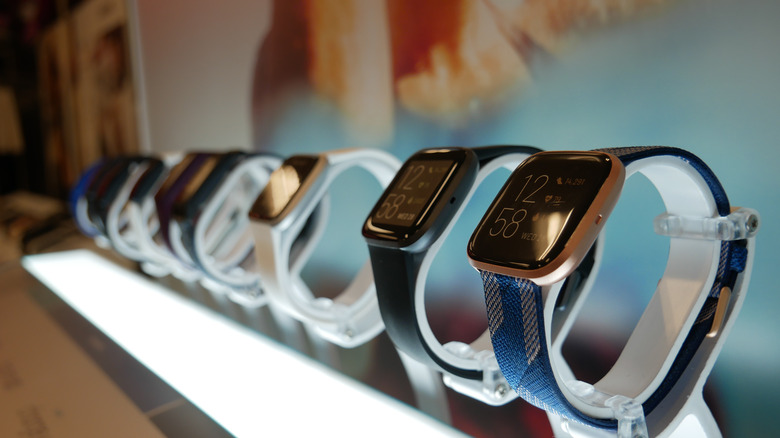Smartwatch Versus Fitness Tracker: Which Is Right For You?
Having a wide variety of technological devices to choose from can be great for providing a number of options to help organize, track, and streamline everyday life. However, knowing exactly what device is right for you can be tricky, especially when devices can look similar but have different functions and purposes. Understanding the differences between devices can impact the type of device you select.
A good example of this are fitness wearables, like smartwatches and fitness trackers. While both types of devices are typically wearable and use your smartphone to provide a full account of data collected from the device, their purpose and function are a bit different. So how do you know which of the two devices is the best for you? A breakdown of the major differences between fitness trackers and smartwatches can help you to determine which one to choose.
When it comes to the fitness industry, technology has brought a lot of positive advancements along. Lucky for us, both fitness trackers and smartphones have some capabilities to provide health and wellness statistics and monitoring, according to Review Geek.
Overview of fitness trackers
Fitness trackers, like Fitbit, offer tracking and data analysis on your heart rate, calories burned, steps taken, floors climbed, sleep, menstrual cycles, and more. Some wearable fitness trackers even offer measurements of heart activity and oxygen levels while providing a comparison for monitoring purposes, according to Healthline. These more advanced fitness trackers may be able to have limited interactions with traditional phone applications, like answering calls, providing a brief review of text messages, or allowing fund transfers. However, most fitness trackers are limited to focusing primarily on health and wellness data rather than being an extension of your cell phone.
Other features to consider are the size of the display screen and the battery life of the device itself (via Review Geek). Most fitness trackers offer simpler device displays with minimal data, restricting charts, graphs, and trend data statistics to be viewable in the app. However, the battery life for most fitness trackers is preferred, with most devices not needing to be recharged for several days. Fitness trackers tend to be a bit less expensive as well, with midrange devices costing around $100. However, more advanced trackers can be closer to $200 (via Fitbit).
How to choose between smartwatches and fitness trackers
Smartwatches are also wearable devices, however, these devices offer much more extensive communication options while also tracking some of your health. Functioning as a miniature cellular device, many smartwatch devices, like the Apple watch, utilize your phone's service provider signal to function even when at a considerable distance from your cell phone (via Apple). This function allows your smartwatch to answer calls, read messages, and even stream music from internet streaming services, explains Review Geek.
When compared to fitness trackers, smartwatches are a bit better with the device display, typically offering a larger display with more options and functionality. However, unlike fitness trackers, smartwatches tend to have much shorter battery life and need more consistent charging, with some devices requiring daily charging periods. When it comes to cost, however, smartwatches have a much higher price tag. For example, Apple watches can vary from $249 to over $1000 for a more luxury model (via Apple).
If you're looking to splurge on a form of wearable technology, it's important to first determine what you want from your device. If you're looking to spend a little bit of money and are really focused on only getting a picture of your health and wellness trends, a fitness tracker is definitely the way to go. However, if your goals are to be hands-free throughout your day while still managing to answer calls, read texts, and listen to your favorite tunes, a smartwatch might be the better option.



